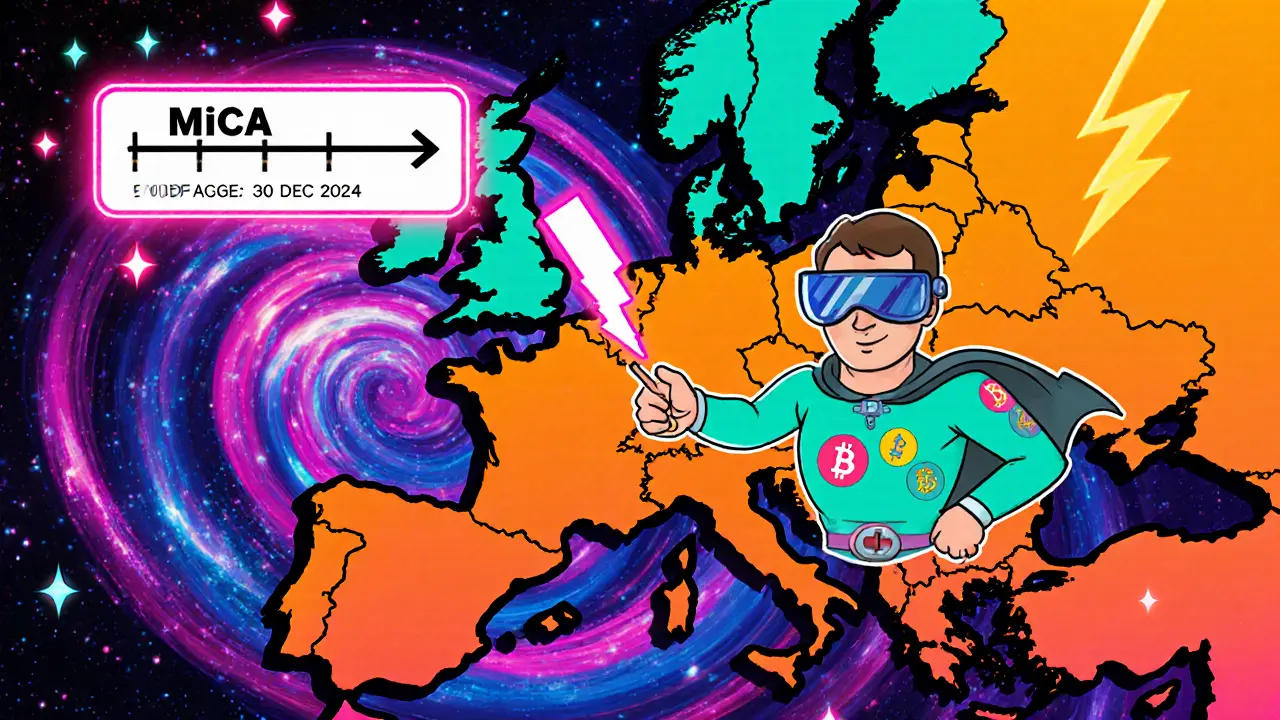Crypto Licensing EU: What Every Trader and Project Needs to Know
When working with Crypto Licensing EU, a regulatory framework that governs how crypto businesses operate across European Union member states. Also known as EU crypto licensing, it aims to create a safe, transparent market for users and investors. The EU’s main rulebook, MiCAR, sets the baseline for token issuance, stablecoins, and service providers. National supervisors like BaFin in Germany enforce these rules locally, while AML compliance ensures that money‑laundering risks are mitigated across the bloc. Together they form a three‑layer system: EU‑wide standards, national oversight, and anti‑money‑laundering safeguards. This structure means any exchange, wallet, or DeFi protocol wanting to serve European users must align with MiCAR, register with the appropriate national agency, and embed robust AML checks.
Key Pieces of the EU Crypto Licensing Puzzle
MiCAR (Markets in Crypto‑Assets Regulation) is the cornerstone. It classifies assets into utility tokens, asset‑referenced tokens, and e‑money tokens, each with its own capital and disclosure requirements. For example, stablecoin issuers must hold reserves equal to 100 % of the token's value and publish daily attestation reports. BaFin, as Germany’s financial watchdog, illustrates how national regulators translate MiCAR into concrete licensing steps: firms submit a detailed business plan, undergo fit‑and‑proper checks on senior staff, and prove they can meet AML standards set by the EU’s Fifth Anti‑Money‑Laundering Directive. AML compliance itself is a moving target – it demands transaction monitoring, Know‑Your‑Customer (KYC) procedures, and regular reporting of suspicious activities to the Financial Intelligence Unit (FIU). Missing any of these pieces can trigger fines, license revocation, or even criminal prosecution.
Beyond the core trio, the EU ecosystem is shaping up with related rules that affect crypto licensing. The EU’s crypto mining regulations address energy consumption and sustainability, while the UK’s emerging crypto hub policies hint at cross‑border cooperation. Enforcement actions, like the recent crackdown on unlicensed providers in France, show that regulators are willing to act quickly when red flags appear. For projects, this means staying ahead of policy shifts, maintaining transparent governance, and building compliance into product design from day one. By understanding how MiCAR, BaFin, and AML requirements intertwine, you can navigate the licensing maze with confidence and avoid costly missteps.
Below you’ll find a curated collection of articles that break down each element in detail – from step‑by‑step licensing guides to deep dives on MiCAR’s token classifications, BaFin’s inspection process, and practical AML toolkits. Whether you’re a startup looking to launch in Europe or an investor assessing regulatory risk, the posts ahead will give you actionable insights and real‑world examples to help you stay compliant and competitive.
EU Crypto Business Transition Periods under MiCA Explained
Learn how EU crypto firms can navigate the varied MiCA transition periods, avoid missed deadlines, and secure full licensing for EU-wide passporting.
